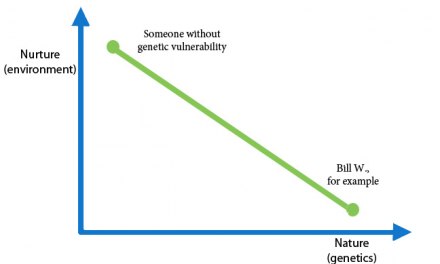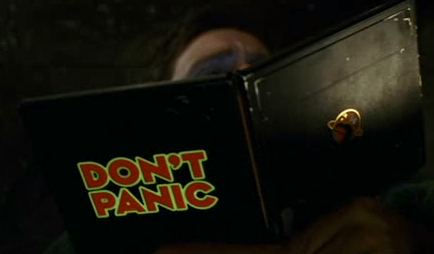Warning: Undefined variable $serie in /home/domains/treatmentandrecoverysystems.com/docs/wp-content/plugins/wp-series-manager/wp-series-manager.php on line 264
On the principle of starting with the most-available, easiest-to-access, demonstrably-effective tool, we usually advise even nonbelievers to try the Step fellowships. If they don’t work, there are other tools. However, the Steps may benefit from a little “re-engineering” to increase the nonbeliever’s chances of success. Here’s the next “Re-Engineered Recovery Tool,” Step Ten:
Step Ten: Continued to take personal inventory, and when we were wrong, promptly admitted it.
If we divide the Step-based work up to here into functional groups, we can see
- The first three steps helped us self-diagnose our addiction/alcoholism;
- The next two let us identify the flaws and patterns that can impede healthy recovery and/or feed relapse;
- The next two involved making a positive commitment to change; and
- The most recent two began to repair our ability to make healthy, supportive connections with other people.
When you put all of that together, it’s a great deal of progress—and it’s worth maintaining those gains, as well as using what we’ve learned to continue building sobriety, health, and resilience. The last three Steps are focused on just that.
Step ten asks us to continue the process of “taking inventory.” There’s no requirement about how often, but it’s like the old joke about the tourist who asked a Manhattan native how to get to Carnegie Hall— and got the one-word response: “Practice!” A daily or weekly review of how well we’re managing to live according to these principles keeps us focused on what’s important.
We’re also asked to make prompt admission when we’re ‘wrong.’ That’s an unfamiliar concept to many of us, including plenty who aren’t even alcoholics or addicts. We take pride in standing up for our beliefs, but we’re often just as vehement in defending ourselves when we know full well we’ve worked our way pretty far out on a limb. It’s only human, but for us, it’s also a way of keeping ourselves connected to a destructive set of defense mechanisms and denial.
We might misjudge a situation, or a person. It’s easy to rely on false information or assumptions, especially when they feed our biases. So we end up committing ourselves to a position we later regret taking—and for many of us, in the past that would mean trying to tough it through, relying on our overdeveloped defensive skills to divert attention from our mistakes.
But this isn’t the past, and we’re committed to change. This step suggests we keep it simple: Were we right, or wrong? And if wrong, just admit it. No fuss. Everyone’s wrong sometimes. It’s surprisingly powerful—if you’re not fighting your own conscience, you feel better about yourself, and conflicts with others diminish, too.
Working Step Ten: Start by scheduling a short session daily, to review the past day, or few days (things look different when a little time has passed,) in terms of “right, or wrong?” If you discover you were wrong about something, don’t just let it go without admitting it to the appropriate person. Then (and this can be the hard part!) forget about it.
Coming Soon: Balancing Act
Please Comment Below
[serialposts]
These are posts belonging to the same serie:
- Recovery Without God
- Taking Charge by Having Faith
- Atheology for Recovery
- The Church of the Exalted Chemical
- Coordinates on the Recovery Map
- Finding a Skeptical Starting Point
- Re-Engineering Recovery Tools
- Nonbelievers Moral Inventory
- Taking the Fifth
- The Readiness is All
- Humility Ain't for Wimps
- The Damage Assessment
- Do-It-Yourself Repairs
- Balancing Act













